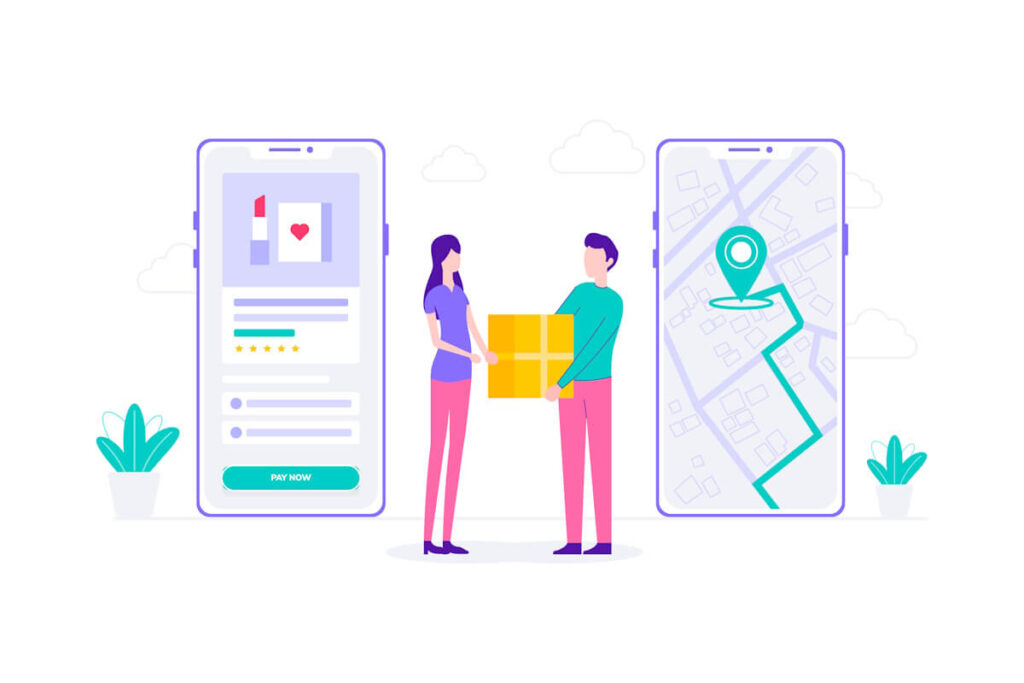In today’s fast-paced world, having a logistics mobile app that can scale efficiently is crucial for businesses of all sizes. Whether you are a small startup or a large enterprise, ensuring scalability in your logistics mobile app is essential to meet the demands of your growing customer base. Here are some key strategies to help you achieve scalability in your logistics mobile app:
1. Design for Scalability from the Beginning
When developing a logistics mobile app, it’s important to design with scalability in mind from the very beginning. This means considering factors such as server infrastructure, database architecture, and code optimization to ensure that your app can handle increased traffic and user activity as it grows.
- Ensure that your server infrastructure is capable of handling peak loads by utilizing scalable cloud services.
- Optimize your database architecture for efficient data retrieval and storage to prevent bottlenecks.
- Implement best practices in coding such as modular design and efficient algorithms to enhance performance and scalability.
2. Use Cloud Services for Flexibility
One of the best ways to ensure scalability in your logistics mobile app is to leverage cloud services. Cloud providers offer flexible and scalable solutions that can easily accommodate fluctuating demand and user traffic. By using cloud services, you can quickly scale your app up or down as needed without the hassle of managing physical servers.
- Choose a reliable cloud service provider that offers auto-scaling capabilities to adjust resources based on demand.
- Utilize cloud storage solutions for efficient data management and accessibility from anywhere.
- Implement cloud-based security measures to safeguard sensitive information and protect against cyber threats.
3. Implement Load Balancing
Load balancing is a key technique for distributing incoming network traffic across multiple servers to ensure optimal performance and reliability. By implementing load balancing in your logistics mobile app, you can evenly distribute the workload across your servers and prevent any single server from becoming overwhelmed during peak usage periods.
- Use load balancing algorithms such as Round Robin or Least Connection to evenly distribute traffic.
- Monitor server health and performance metrics to dynamically adjust the load balancing configuration.
- Implement failover mechanisms to ensure continuous operation in case of server failures.
4. Utilize Microservices Architecture
Microservices architecture is a software development approach that structures an application as a collection of small, loosely coupled services. By breaking your logistics mobile app into smaller, more manageable components, you can easily scale individual services independently based on demand. This allows you to efficiently allocate resources and optimize performance as your app grows.
- Design services that are focused on specific functions to enhance scalability and maintainability.
- Use lightweight communication protocols such as REST or gRPC for efficient interaction between microservices.
- Implement containerization technologies like Docker to streamline deployment and management of microservices.
5. Monitor Performance Metrics
Regularly monitoring performance metrics is essential for ensuring scalability in your logistics mobile app. By tracking key indicators such as response times, error rates, and server load, you can quickly identify bottlenecks and optimize your app for peak performance. Utilize monitoring tools and analytics to gain insights into your app’s performance and make data-driven decisions to improve scalability.
- Set up dashboards to visualize performance metrics and trends for quick analysis.
- Use alerting mechanisms to notify you of any performance issues or anomalies in real-time.
- Conduct regular performance tests and load simulations to proactively identify scalability challenges.
6. Plan for Future Growth
When designing and developing your logistics mobile app, it’s important to plan for future growth and scalability. Consider factors such as new features, increased user base, and expanding geographic reach when building your app architecture. By anticipating future needs and designing for scalability, you can future-proof your app and ensure seamless expansion as your business grows.
- Conduct regular capacity planning exercises to assess the scalability requirements for future growth.
- Incorporate flexibility in your architecture to accommodate new functionalities and technologies.
- Continuously iterate on your app’s design and infrastructure to adapt to evolving business needs and market trends.
By following these key strategies and best practices, you can ensure scalability in your logistics mobile app and provide a seamless user experience for your customers. Prioritize scalability from the beginning, leverage cloud services, implement load balancing, utilize microservices architecture, monitor performance metrics, and plan for future growth to create a robust and scalable logistics mobile app that can adapt to the needs of your growing business.
Looking to enhance your logistics operations with a scalable mobile app? Contact us today to discover how we can help you achieve seamless growth and efficiency.
FAQs:
1. Why is designing for scalability important in a logistics mobile app?
Designing for scalability from the beginning ensures that the app can handle increased traffic and user activity as it grows.
2. How can cloud services help in ensuring scalability in a logistics mobile app?
Cloud services offer flexible and scalable solutions that can easily accommodate fluctuating demand and user traffic, allowing for quick scaling up or down as needed.
3. What is the role of load balancing in a logistics mobile app?
Load balancing distributes incoming network traffic across multiple servers to ensure optimal performance and reliability, preventing any single server from becoming overwhelmed during peak usage periods.
4. How does utilizing microservices architecture contribute to scalability in a logistics mobile app?
Microservices architecture structures an app as a collection of small, loosely coupled services, allowing for scaling individual services independently based on demand to efficiently allocate resources and optimize performance as the app grows.
